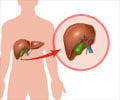A survey conducted by urologists and internists at the University of Bonn has found that kidney transplants carried out at night require a further operation more than twice as often
Kidney transplants carried out at night require a further operation more than twice as often as operations during the day, a survey conducted by urologists and internists at the University of Bonn has found.
The researchers have also found that the risk of premature failure of the transplant is higher with operations taking place at night.Writing about their findings in the journal Transplantation Proceedings, the researchers say that the reason is probably that the surgeon is more alert and focused during the day.
Dr. Guido Fechner and Professor Stefan Muller scrutinised a total of 260 kidney transplants for their study. More than 60 per cent had been carried out during the day, the remainder between eight in the evening and eight o'clock in the morning.
Over 16 per cent of all the 'night kidneys' had to be operated on a second time in the month following the transplant due to surgical complications, while the complications rate was significantly less with the 'day kidneys', being over six per cent.
Dr. Guido Fechner said that there was a higher than 90 per cent chance that 'day kidneys' would function flawlessly even five years after the transplant, while the figure was only 80 per cent for 'night kidneys'.
Surgical skill is a critical factor for success, particularly with a complicated procedure like transplant.
Advertisement
"It was long believed that kidneys had to be as fresh as possible, at all cost, for the transplant to be successful," Dr. Fechner said.
Advertisement
"Rescheduling a kidney transplant within this time frame, say from 5 a.m. to 8 a.m., without the transplant suffering, is definitely feasible. Instead operations are performed as early as possible, even if that means the urologist has to work at night," he said.
The researcher also said that an alternative could be a living kidney donation during which the kidney is taken from a living donor and is immediately inserted into the recipient, which is always happens during the day.
Source-ANI
RAS/L















